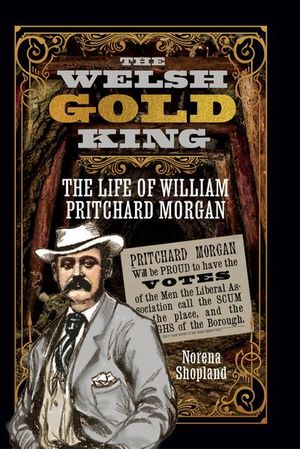The Welsh Gold King
Published by Pen & Sword Books
In 1864, a poor Welsh boy, William Pritchard Morgan, emigrated to Australia to make his fortune. He returned a wealthy lawyer and aspiring politician, having used his riches to invest in gold mines and develop new techniques of recovering gold. His political aims were unsuccessful in Australia: the newspaper Morgan used to promote himself was involved a sensational trial against another editor; and a man was even shot while bringing in his votes - so Morgan claimed. He returned home, ready to tackle the mining of Welsh gold. After ousting the key players of the 1860s Little Gold Rush, Morgan soon took over Gwynfynydd, one of the area's most lucrative mines, and stood as an independent MP for Merthyr. He boasted of a fantastic seam of gold, so great he would pay off the national debt… a hero overnight, the Welsh Gold King took the title of Merthyr's MP. Despite the massive successes of his mines, the government taxed Morgan hard and almost crippled his business, so he refused to pay. When the government tried to shut him down, the public rose to his defence, and Morgan was sued in an avidly watched trial that could change mining in Britain forever. The Welsh Gold King bestowed gifts on many well-known people, including royalty, and promoted the tradition that all royal brides wear wedding rings of Welsh gold. He gave golden prizes – some of which caused great controversy – and his liberal politics were a forerunner of Labour views that were hard for many of his contemporaries to agree with. An extraordinary character, Morgan was pivotal in the story of mining for gold in Wales.
BUY NOW FROM
COMMUNITY REVIEWS

